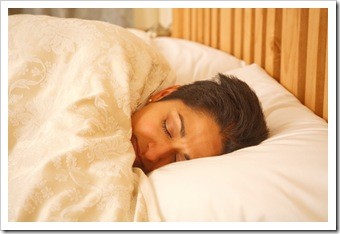
Have you ever woken up after a full night’s sleep and felt more exhausted than when you went to bed? Of course you have, but what is the difference between good sleep and bad sleep? The difference is in our sleep cycle and most importantly about the REM our brain was able to experience during this time.
What is REM?
REM or Rapid Eye Movement is one the two main cycles in our sleep. During REM sleep our voluntary muscle groups become temporarily paralyzed by the base of the brain. By turning off the neurons in our spinal cord we do not actively act out the dreams that we are experiencing.
It was first given this name by scientists who noted the rapid, jerky movements of the eyes through closed lids, as if the persons asleep were seeing something. When an electroencephalogram (EEG) was attached to volunteers in a sleep study, it showed that the levels of brain activity were nearly identical to those who were awake. They also noted an increase in heart rate and breaths per minute.
While we sleep we cycle between REM and non REM with four stages of NREM sleep preceding one stage of REM. NREM sleep is the stage at which our body repairs itself, energy is replenished and our immune system is boosted. A complete cycle of sleep takes between 90 and 110 minutes in total, with approximately a quarter of that time being spent in REM sleep. It is also the stage during which dreaming almost always takes place. Scientists are still trying to discover the extent to which REM sleep affects our health and mental well-being, but they do know that REM sleep is important for the development of creativity and problem solving ability, and is how we learn to adapt to our world.
Age Difference
The percentage of time spent in REM sleep is the greatest among babies and children. Babies can spend as much as 50% of their sleep time in the REM stage. And while it has been thought that the dreams we experience during REM sleep are a consolidation of the memories that we have experienced during the previous day, babies in the womb (who experts believe have few or no real world memories) spend most of their sleep time in a state of REM.
Although we are still unclear of its true dynamics, a Professor of Psychiatry Emeritus at Harvard University, J. Allan Hobson, says the purpose of REM sleep is: “A reinforcement of basic knowledge—knowledge that precedes any waking-state learning: how to be a person, how to be an ego, how to exist in a space, how to move in a space, how to feel. It’s not environmental memory; it’s genetic memory.”
For Your Health,
Dr. Mark Hardwick and Dr. Mitchell Jacobs
